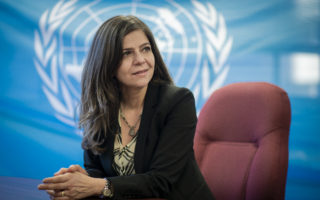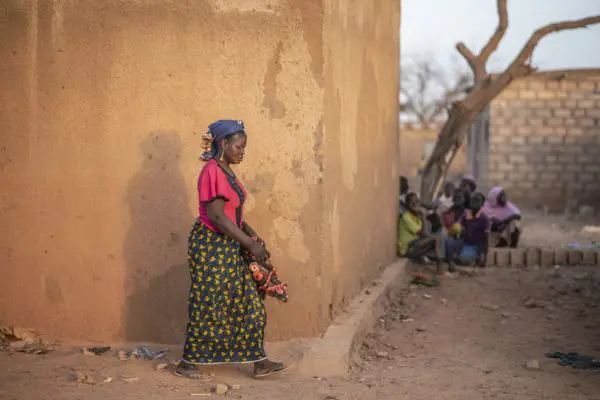
Tareq Hadhad, a Syrian refugee and founder of Peace by Chocolate, joins 48 other new Canadians in waving their Canadian flags following a Canadian citizenship ceremony at Pier 21 in Halifax, Nova Scotia on Wednesday, January 15, 2020. © UNHCR/Darren Calabrese
OTTAWA, CANADA – UNHCR, the UN Refugee Agency, welcomes Canada’s 2021–2023 Immigration Plan, which includes an increase in refugee resettlement levels for the next three years as part of an overall increase to Canadian immigration.
“We greatly appreciate Canada’s continued leadership in refugee resettlement, at a critical time when the gap between the number of refugees in need and the places made available by governments has never been greater,” said Rema Jamous Imseis, UNHCR’s Representative in Canada.
“As we face unprecedented global challenges due to the COVID-19 pandemic, Canada’s tradition of welcoming newcomers remains unwavering. In an era of travel restrictions and closed borders, refugees continue to be welcomed by Canadians. The significance of this lifeline and the deep generosity of Canadians cannot be overstated,” Jamous Imseis said.
Canada has also demonstrated leadership in exploring innovative solutions for refugees in need of protection by expanding opportunities for them to come to Canada through economic immigration pathways. In addition to supporting the creation of a new Global Task Force on Refugee Labour Mobility, Canada will admit up to 500 refugees as part of its Economic Mobility Pathways Project over the next two years, allowing refugees to help address persistent labour shortages in the Canadian market.
While the COVID-19 pandemic has impacted employment levels, results from the last national census indicate that newly arrived refugees do as well as those who arrived in the past. “Canada has proved time and again that it is willing and able to integrate refugees, who become important contributors to the country’s economy and cultural diversity – whether as business owners or essential frontline workers,” said Jamous Imseis. “Data clearly show that Canada benefits from giving refugees the chance to build a better life, and in the process help enrich the fabric of our communities.”
For more information and interview requests:
In Ottawa, Melanie Gallant, Tel. +1 (613) 850-1268, gallant@unhcr.org





